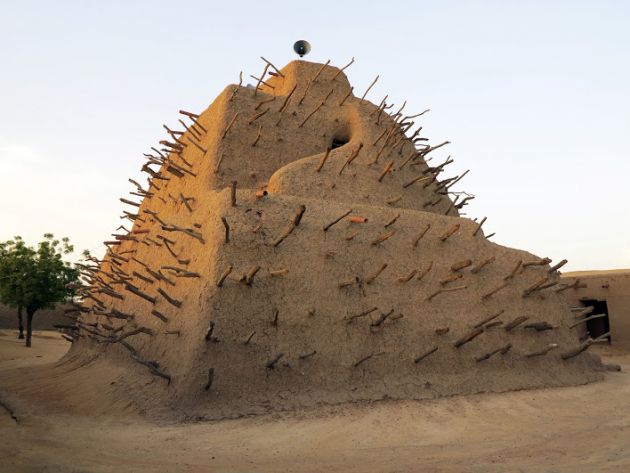Mali violence fuelling hunger in Africa's Sahel, says Christian Aid

French forces said on Monday they had entered the Sahara Desert market town of Timbuktu after reports that the recent escalation in fighting in Mali is worsening a chronic food crisis in Africa's Sahel region.
At the same time the UN rights agency has warned the Mali crisis triggered various human rights violations, including extrajudicial killings, rape and torture in 2012, some in the name of religious law as extremists have entered a long-running conflict.
"These have been documented in a report requested by the Human Rights Council which was published by our Office on Jan. 14, along with the growing ethnic tensions in the country which raise very serious concerns," Rupert Colville, spokesperson for the UN High Commissioner for Human Rights told journalists in Geneva last week
The fighting and the resulting displacement of people within Mali and to neighboring countries is worsening the acute food crisis in the Sahel and contributing to ever-rising levels of malnutrition, Christian Aid, a member of the ACT Alliance, is warning.
"The current food crisis has already brought suffering to more than 18 million people across the region," warns Yacouba Kone, Mali country director for the British and Irish churches' global development agency.
"The more people are forced to flee the mounting military offensive in the north, the more market gardens are being abandoned and the less vegetables are being produced for child nutrition," said Kone in a statement on Christian Aid' s website.
The UN Office for the Coordination of Humanitarian Affairs (OCHA) recently announced the number of internally displaced persons is now more than 200,000.
The renewed conflict in the north of Mali comes when the agency estimates that 4.2 million Malians will need emergency humanitarian relief this year.
Malian refugees have also sought refuge in neighboring countries, with 1,829 new arrivals in Burkina Faso and 487 in Niger as of Jan. 21 this year, said OCHA. Initial UNHCR assessments in Burkina Faso show inadequate food rations and the need to improve maternal health services.
As well as the pressing issue of growing regional food insecurity, there is also an important need to avoid confusion between Islamists on the one hand, and Touareg and Arab communities on the other, said Christian Aid's Kone.
"Like in previous northern Malian conflicts, many civilians of Arab and Touareg origin have been targeted by the military simply because of their ethnicity and unsubstantiated rumours that they are protecting the rebels," he noted.
"We are now hearing reports that some Touareg and Arab community members are being attacked by Malian troops who may be seeking revenge for the atrocities committed by the rebels on January 2012 when many Malian soldiers were executed in Aguelhok, a military base in the Kidal Region of eastern Mali."
Kone said all those involved in the conflict needed to take necessary measures to prevent harm to civilians, particularly women and children. In addition they needed to respect the right of people in need to humanitarian assistance and to allow rapid. Aid agencies need safe and unimpeded passage those in need.
He said working in aid with partner organizations Christian Aid was providing emergency aid through established Malian organizations in many regions affected by the violence, including Gao in the north, and Bandiagara on the Dogon Plateau in Mopti region.
Separately, Colville from the UN High Commissioner for Human Rights said, "Civilians in the North suffered from degrading treatments by extremist groups, based on an extreme interpretation of Sharia.
"Women, in particular, have suffered from harassment, abuses and sexual violence, for example after being accused of being improperly veiled or dressed, or for riding on a motorbike. On April 3, a 22-year- old woman was raped by six armed men allegedly belonging to the Ansar Dine extremist group for not wearing her veil in her own home."